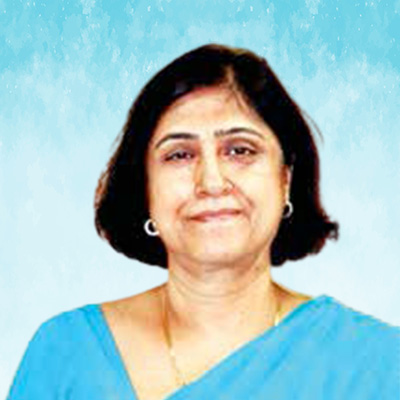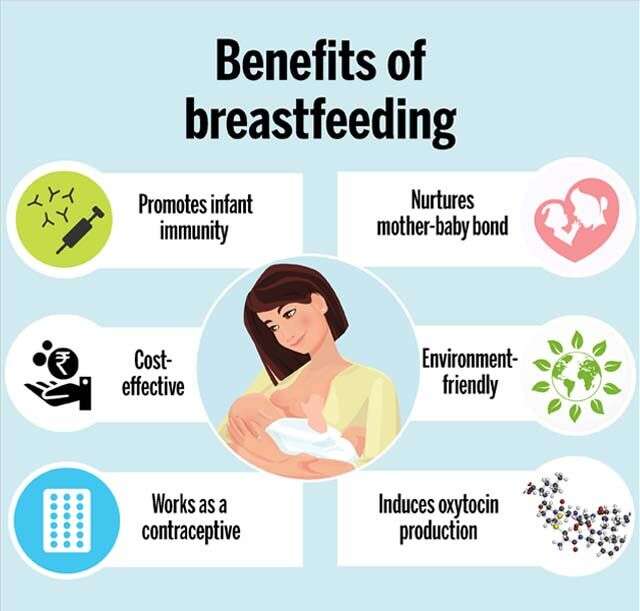Breast Feeding and COVID-19
 However, increasing cases of COVID-19 arises some concerns over the breastfeeding but till date there is no evidence of mother to child transmission of COVID-19 during breast feeding. Breast feeding is the basis of the infants and young child’s survival, nutrition and development…. ….
However, increasing cases of COVID-19 arises some concerns over the breastfeeding but till date there is no evidence of mother to child transmission of COVID-19 during breast feeding. Breast feeding is the basis of the infants and young child’s survival, nutrition and development…. ….
By Dr. Suneela Garg/Dr. Parag Bhardwaj
Today breast feeding came up with the goal to promote exclusive breastfeeding for the first six months of life which yields many health benefits, providing critical nutrients, protection from deadly diseases and fostering growth and development.
World Breastfeeding Week (WBW) is annually celebrated from 1 to 7 August in most of the countries however, in some countries WBW is celebrated in the month of May, October or November. WBW is celebrated in more than 120 countries worldwide and being organized by World Alliance for Breastfeeding Action (WABA), the World Health Organization (WHO), and United Nations Children’s Fund (UNICEF). WBW is also associated with the Sustainable Development Goals (SDGs) since 2016. Every year WABA provides themes to celebrate the WBW and this year for 2021, theme for WBW is “Protect Breastfeeding: A Shared Responsibility.”
The theme is associated with WBW-SDG 2030 campaign which highlights the links between breastfeeding and survival, health and wellbeing of women, children and nations.
Objectives of WBW 2021:
1. Inform people about the importance of protecting breastfeeding
2. Anchor breastfeeding support as a vital public health responsibility.
3. Spur action on protecting breastfeeding to improve public health.
4. Engage with individuals and organizations for greater impact.
Pregnancy and lactation are an especially crucial time for working women and their families. Expectant and nursing mothers require special protection to prevent harm to their or their infants’ health, and they need adequate time to give birth, to recover, and to nurse their children.
 What is breastfeeding?
What is breastfeeding?
Breastfeeding is the feeding of an infant or young child with breast milk directly from female human breast (i.e. via lactation) not from a baby bottle or other container.
Importance of breastfeeding
For the baby: early initiation of breastfeeding prevents hypothermia and foster bonding. Colostrum, which is the first secretion from mammary glands after giving birth is the first vaccination to the child. It is purgative (clear jaundice early), rich in vitamin A and helps intestine to mature and prevents allergy. Breast feeding gives protection against infections because breast milk contains white cells and many anti- infective factors as infants’ immune system is not fully developed so they are dependent on mother’s fighting cells. In many of the studies, it was evident that if a mother gets any infection then her milk contains antibodies which in turn protects baby from that infection. Furthermore, breast milk is a complete food for the child with all nutrients. Overall, breast milk helps in complete development of a child.
For the mother: early breast feeding serves a serve as a natural contraceptive method also known as Lactational amenorrhea which is the temporary postnatal infertility that occurs when a woman is amenorrhoeic (not menstruating) and fully breast feeding. Moreover, breastfeeding by mother prevents her from carcinoma of breast, ovary and osteoporosis. It helps in quick and early involution of uterus and reduces postpartum bleeding. Furthermore, it helps in restoration of original physique of the mother.
For the community: breastfeeding reduces infant morbidity and mortality. It saves time, money and conserves energy. Breast feeding is safe, sound and sustainable feeding and it is also a golden standard of infant feeding.
Breast feeding helps in cognitive development as average of 3-6 IQ points are higher in breastfed babies than formula milk fed babies which in turns helps them good development of brain in the future.

Benefits of breastfeeding
According to the lancet 2016, increasing breastfeeding could help in preventing the following problems:
1.14% of all deaths among infants who are less than 2 years old.
54% of diarrhea episodes in the infants.
32% of respiratory infections in the infants.
20,000 maternal lives annually from breast cancer.
Reduces the health expenditures for the government and families.
Respiratory hygiene and COVID-19
Evidences suggest that COVID-19 could transfer to baby through infectious respiratory secretions of mother, thus respiratory hygiene is required while breastfeeding and handling infant to prevent COVID-19 transmission.
National Breastfeeding Recommendation (for COVID-19 + mothers)
No separation of baby and to practice skin to skin contact.
Breastfeeding to be started within 1 hr of birth
Exclusive breastfeeding for six months
Continue breastfeeding for 2 years
Maintain respiratory hygiene
Hospitals should adopt national guidelines of breastfeeding in COVID-19 disease in their health facility. Training should be provided to staff to counsel and support early start of breastfeeding and manage breastfeeding difficulties. Access to logistics like masks, water, soap etc should be made easy. Ban could be applied on free or subsidized supply, donations and promotion of infant milk substitutes.
Efforts could be taken to promote breastfeeding:
Counsel, support and encourage
Counsel and support mother for breastfeeding, counseling could be done via experts, family members, husband etc
Inform the benefits of breastfeeding, these benefits outweigh the potential risks of any infection.
Provide psychological and mental support to mothers and family members.
Counseling makes a positive difference
Various schemes to promote maternal and child health or breastfeeding in India
Dr. Muthulakshmi Reddy Maternity benefit scheme
Launched in 1987, first of its kind scheme in the country
The pregnant mother should be of age 19 years and above.
The pregnant women should be in below poverty line group
The eligible mother will receive cash benefit of 18,000/- in 5 installments for 2 deliveries.
Pradhan Mantri Matru Vandana Yojana
All pregnant women and lactating mothers, exclude those who are in regular employment with regular with the central government or the state government of PSUs.
All eligible pregnant women and lactating mothers who have their pregnancy on or after 01/01/2017 for first child in family.
Case of miscarriage/still birth/infant mortality
Rs. 5,000 cash benefit will be provided to the mothers in 3 installments.
3. Janani Suraksha Yojna, 2005
4. Surakshit Matritva Aashwasan (SUMAN), 2019
5. Maternity Benefit Act, 2017
6. POSHAN abhiyan
7. Mother’s Absolute Affection (MAA), 2016
A Way Ahead
Of course there are many different demands on busy mothers, meaning that women who may to breastfeed their babies haven’t always got the support to continue this. Busy working schedule, alongside the many other challenges that modern women face can mean that women don’t always feel that breastfeeding their child is something that is an accessible option to them. The governments and other stakeholders work together to create a breastfeeding friendly environment, is a vital part of protecting and supporting breastfeeding. World Breastfeeding Week highlights the different roles of segments of society in protecting and supporting the vital caring act of breastfeeding.
(The authors are Professor of Excellence and President of IAPSM/ Research Assistant)

